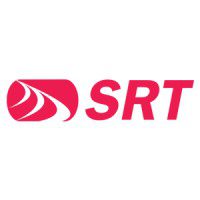

MINOT — Cassidy Hjelmstad would be the first to tell you that the SRT she joined in September of 2010 was a much different company that SRT 2022.
“I look back, and I am thankful that I was able to get a job with a fantastic company that was doing incredible things that actually came to light during the pandemic,” Hjelmstad said.
SRT has been on an aggressive fiber build out for many years, bringing fiber to the rural areas it serves, and that translates into services that are on par with anywhere in the country.
“We are offering internet services similar to what is available in cities in the United States, and you can get that same internet on a farm where I grew up,” Hjelmstad said.
Where Cassidy grew up was in Newburg, North Dakota, “born and raised there” says Hjelmstad, which gives her a unique perspective on what it means to be on the cutting edge of technology even on a farm that is miles from the nearest town.
Once Hjelmstad moved back to the area where she grew up, it didn’t take long for her to see that working at SRT was special.
“I have worked for a company that has allowed me to not only work my way up the ladder but love every minute of what I am doing,” according to Hjelmstad, “it’s been exciting.”
Then came 2011 and the flood that ravaged the Souris River basin.
“The flood affected everyone. Whether you were directly affected, and your home was directly affected…or you were one of those who had people living in your home, or you went to help someone move out, you were affected. I had been home for 6 months and the flood hit. I saw how the community reacted and helped each other and it was incredible,” according to Hjelmstad.
“Thousands of people lost their home and with that their land lines. SRT was able to react, mostly on our own, and get people cell phones so they could continue to be connected. We didn’t need to rely on some big company to come and save us, because they weren’t going to. We put up temporary trailers… they looked like ice fishing houses and made them complete offices to run services and made them capable of supplying services as quickly as possible,” Hjelmstad said.

SRT: A Local Co-op
The advantage, according to Hjelmstad, was that SRT was a local co-op.
“Every decision was made locally. Every person was vested in this company, and that is what made a huge difference. Our employees were working so hard to help people in our community, and a lot of them had been flooded so we as a company were trying to support them. We looked for ways to help out,” says Hjelmstad, “and you don’t find that in a larger company that doesn’t share that connection to the local community.
SRT 2020 vs. SRT 2010
“Of course, the biggest difference would be broadband. How people back then used internet to basically check their email. I had a blackberry,” Hjelmstad says with a smile, “and our emails were just texts… basic writing or scripts. Now we are using our phones to download and stream and all those other exciting things.”
SRT in 2010 was just starting its fiber build out based on a loan it received from the USDA for a Broadband Incentive Program (BIP) in the Lake Metigoshe area. That was SRT’s first rural fiber area.
Fast forward to 2022 as SRT now has its rural fiber completed, cutting over customers to the new fiber network “and we’ve started our Minot fiber project, taking fiber to every single home and business in Minot, and we’ve already made a lot of progress on that project.” Hjelmstad shared, “10 years of continuous building and working to get this fiber project done.”
The Cost of Progress
The average cost to bring fiber to one home is $9,000, according to Hjelmstad, that cost will vary according to the density of the population.
Much of the territory that SRT covers is rural, and Minot will differ “but it still costs us around $3,000 per home.”
That translates to more than a $50 million SRT investment. The total for the total fiber project and that means bringing fiber to every household will mean between a $130 million and $150 million investment.
“It’s our obligation to bring fiber to every household in the territory we serve. Whether they are a customer of ours today or will be a customer of ours in the future,” Hjelmstad continued, “we fulfilled our obligation as a co-op to make our services available to every member.”
With the way technology is advancing, the services that SRT will provide because of their fiber network will be important.
Landline Catch a Bad Wrap
Souris River Telephone was founded as cooperative to provide telephone service to rural homes.
Right now, land line service is decreasing, but Hjelmstad says she feels that landlines have caught a bad rap.
“I still think there are bad actors and too many scammers, and they may be from another country, that start dialing all of these phone numbers that are available in our phone book, and they are spamming them and using those numbers to do bad things, and they have created a negative atmosphere,” said Hjelmstad. “The government and the FCC have tried to stop this type of activity.”
But Hjelmstad says that it still affects their landline customers even though customers like SRT have installed software to combat this type of activity.
“I don’t think anyone predicted the number of land lines that would be disconnected, but I still believe that a lot those landlines were disconnected because of the scammers and the spoofers,” said Hjelmstad.
Recent Loss of Email Service
Most customers of SRT lost email service for up to 3 days and are now being educated on the definition of ransomware.
“What we learned from this attack is that this is basically what we learned in all of our cybersecurity in our training. It was everything that they said would happen,” Hjelmstad said. “We started sharing information as soon as possible about the situation, but we couldn’t control the messaging like we would have liked to. We learned that when you are under legal advisement, you can’t talk about certain things. There was information that we could not disclose because of that situation. Everyone you talk to says in cybersecurity it’s not a matter of if it is going to happen, it’s a matter of when.”
So SRT has decided to do customer education to let its members know how to help prevent similar attack on them as individuals and protect their information.
And The Future?
“This industry is certainly exciting to me, and what we offer. We are going to continue to improve and supply our critical infrastructure to clients like Minot Air Force Base and Trinity Hospital. To all of those government entities we want to continue to be that critical supplier," said Hjelmstad.
"Right now, we are at 1 Gig of service. But in the future, we are looking at 2.5, 5 and even 10 Gig. We’re having those conversations. We want to continue to be critical partners in the communities we serve. 'How can SRT help smaller communities create and recruit jobs to their communities?'” Hjelmstad shared. “If our communities don’t thrive, we don’t. So, we are here to help that happen.”
For Hjelmstad, she said she sees SRT as being on the cusp of amazing things with the communities it serves.
It is hard to imagine what the future will bring to a company like SRT, but knowing CEO Cassidy Hjelmstad is at the helm, the ship seems on the right course, navigating the waters to bring its customers the very best services.